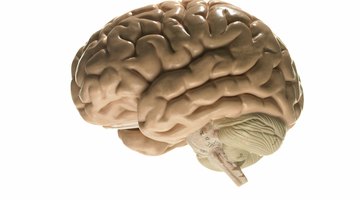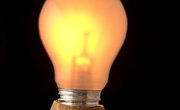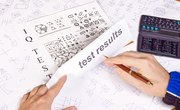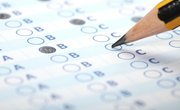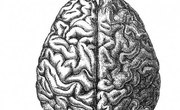Tests for measuring intelligence quotient are generally used to assess an individual’s accumulated cognitive skills, knowledge and problem-solving ability. IQ tests are most commonly used in school settings to gauge a student’s potential for achievement, and to assist teachers in modifying instruction to more effectively serve individual students. Though some psychologists consider general IQ testing controversial for its failure to incorporate social and environmental factors, it's generally accepted as an effective way to measure intelligence.
Above 129
Individuals enjoying an above-129 IQ score are generally considered to have significantly above-average intelligence. The term “genius” is often associated with this level of intelligence. Such an IQ is approximately as rare as any IQ below 70; only 2.34 percent of the population has an above-129 intelligence quotient. Albert Einstein is believed to have belonged to this category, with an estimated IQ score of 160.
110-129
Scores falling between 110 and 119 indicate above-average intelligence. Scores between 120 and 129 signify moderately above-average intelligence. Individuals with moderately above-average intelligence represent approximately 6.87 percent of the population.
80-109
IQ scores falling between 80 and 109 represent 65.73 percent of the population, according to Education.com. Scores in this range that fall below 90 generally indicate low-average intelligence. Scores ranging from 90 to 109 indicate average intelligence, representing 49.62 percent of the population.
70-79
Scores falling between 70 and 79 typically indicate below-average intelligence. Scores in this range represent 7.61 percent of the population. Any scores below 70 generally indicate significantly below-average intelligence.
Human Error
In order to ensure as high a level of accuracy as possible, IQ tests rely heavily on testing personnel to follow a strict set of standardized instructions when administering and scoring the tests. Should a testing administrator fail to meet the test's high standards, the test-taker's final score may fluctuate, losing accuracy. Partly due to this possibility of human error, some regard IQ test scores as a mere approximation of an individual's true potential.
Related Articles
References
Writer Bio
Bill Reynolds holds a Bachelor's degree in Communications from Rowan University. He has written hundreds of articles for print and online media, drawing inspiration from a wide range of professional experiences. As part of the UCLA Extension Writer's Program, he has been nominated for the James Kirkwood Prize for Creative Writing.

